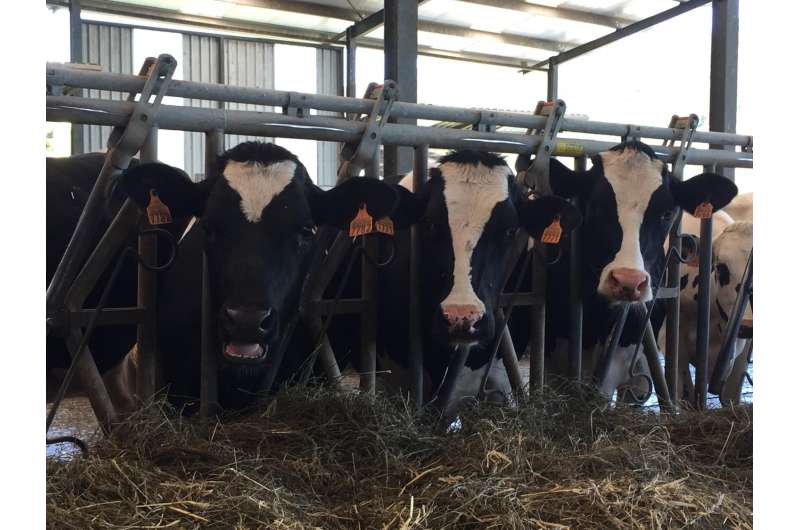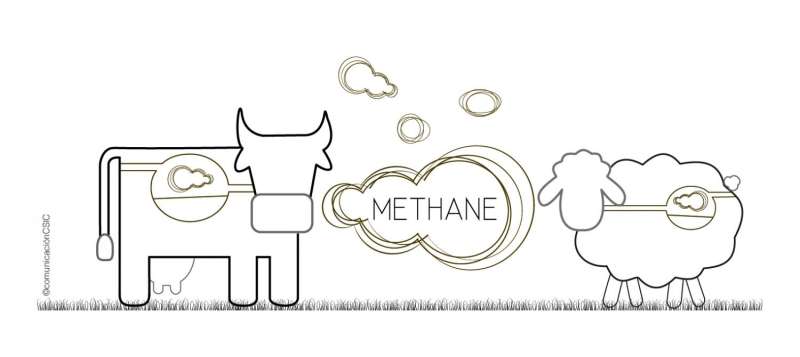Methane production reduced in ruminants

Researchers at the Spanish National Research Council (CSIC) have taken part in a study of the effect of one molecule, 3-nitrooxypropanol, in inhibiting methane production in ruminants. The work has been published in the Proceedings of the National Academy of Sciences (PNAS).
Ruminants are animals that digest their food through fermentation carried out by microorganisms living in the rumen. This process produces organic acids: acetic acid, propionic acid, and butyric acid, all of which are absorbed and metabolized by the organism as a source of energy. But in addition, the process also produces methane, which escapes into the atmosphere in the form of gas.
How 3-nitrooxypropanol works
By 2014, scientists had demonstrated the effectiveness of this molecule in sheep, but were unaware of how it actually worked. The current in vivo research used incubated anaerobic microorganisms from ruminants' digestive systems to reveal that the compound 3-nitrooxypropanol only affects methane-producing microorganisms (arqueas methanogens) and not the bacteria that contribute to digestion. As David Yáñez, a CSIC researcher at the Zaidin Experimental Research Centre in Granada (southern Spain) explains, "Up until now, no one had described the mode of action of a compound that can repeatedly reduce (by 30 percent) methane production in animals without any risks, either to the animal's health, or to their productivity."

The results of this work open up the possibility of reducing methane emissions and contributing to a reduction in global temperatures caused by greenhouse gases. In addition, Yáñez says, "We will see an increase in the efficiency of ruminant production systems as better use is made of the energy taken in in animal feed, given that methane production accounts for a loss of up to 12% of the energy an animal ingests."
More information: DOI: 10.1073/pnas.1600298113
Journal information: Proceedings of the National Academy of Sciences
Provided by Spanish National Research Council (CSIC)
















